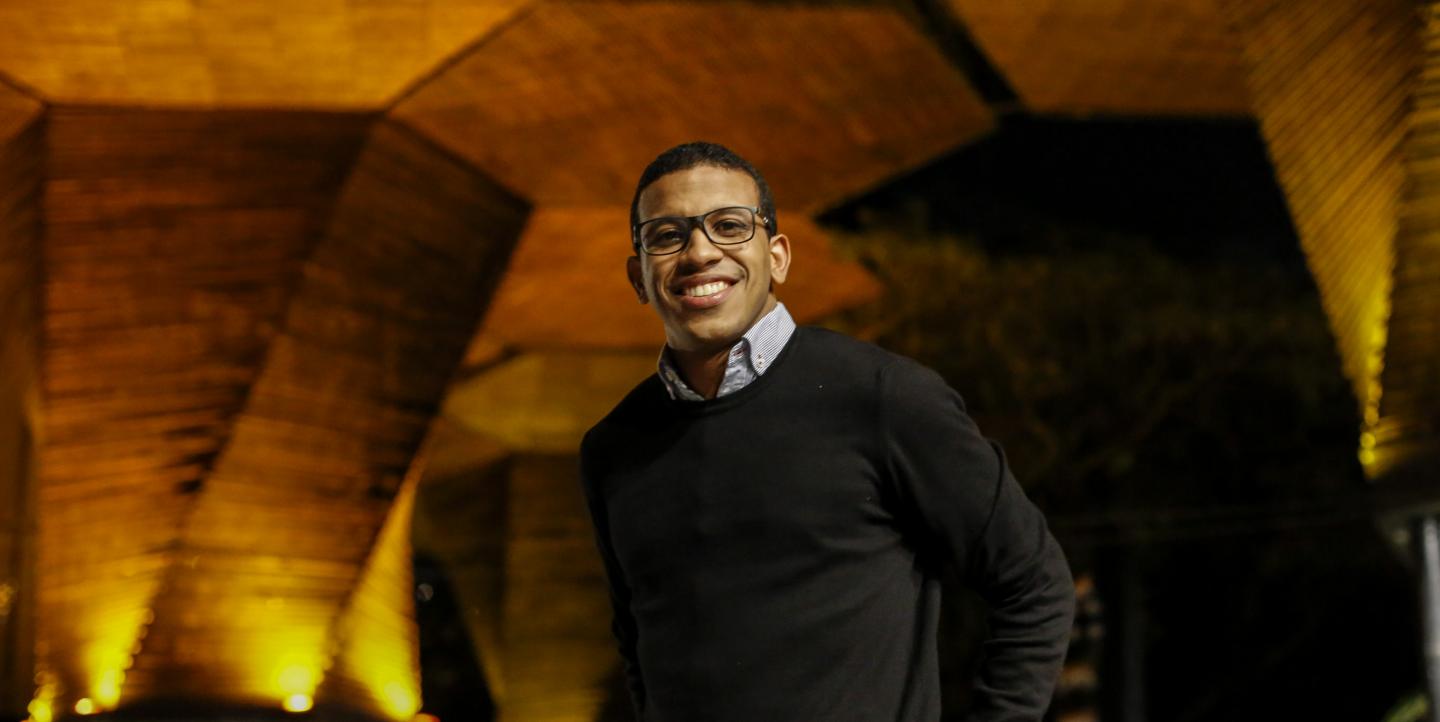The Global Health Crisis Reporting Forum from ICFJ and IJNet is a place for reporters around the world to connect on how COVID-19 is impacting both their country and their work. This is the second in a series of features through which we take a deeper look at the individual stories and work of journalists in the Forum.
This article is part of our online coverage of reporting on COVID-19. To see more resources, click here.
Colombian journalist Karoll Pineda kickstarted his career in the news industry while a university student. He worked for the radio station at the University of Cartagena, where he earned a degree in social communication.
Since graduating, Pineda has held jobs and assignments in journalism and strategic communications. Among them, he has reported freelance for PrimerTiempo.CO, the first digital sports outlet in Cartagena.
In June 2019, Pineda joined Fundación Gabo where he is now an editorial assistant. While he focuses on the foundation’s social media strategy, he continues to report freelance. He’s also working on a few ideas for a new journalistic project or two.
We spoke with Pineda about how he got his start in journalism, what reporting on COVID-19 in Colombia looks like today, and his advice for fellow reporters covering the pandemic.
IJNet: Why did you become a journalist?
Pineda: [There is] the value of being able to impact a community through journalistic work — I like to think that it is valuable to have a chance to provide an appropriate context for individuals in a society to make their own decisions. That is achieved with good information, offering quality and seriousness.
What aspects of your past experience have been especially useful for your reporting on COVID-19?
These days, remembering high school math has been one of the main aspects. No doubt, [the work] has been about reviewing equations and applying basic knowledge to handle data and information to trace the pandemic. On top of that, without a doubt, the fundamentals of journalism.
[Read more: Journalist Sarah Biryomumaisho talks COVID-19's impact on media in Uganda]
What challenges have you encountered while reporting on the pandemic?
Many — in particular, I have been monitoring the virus epidemic in Cartagena, the city I live in. I believe that local journalists have a tough task, especially given the lack of access to local data. There is, for now, very little information regarding victims’ stories, number of tests or many other data resources to tell the story about the pandemic in the most complete possible way.
Telecommuting, or working from home, is also quite a challenge. After sharing your office with colleagues and adapting to the routine, it is difficult to return to working from home when it is mandatory and you’re not able to go out to get fresh air or relax — which is always very necessary. I have had episodes of stress and anxiety due to information saturation, and I have had many problems with my internet connection.
You have a background in sports reporting. How has sports coverage changed during the pandemic?
I am aware of this because I had links with PrimerTiempo.CO, the city's digital sports media outlet, which has been reinventing its news agenda with interviews with athletes. They have created a daily routine of live broadcasts on social networks while interviewing protagonists, from which they extract news content to feed their website.
As for more national references, some sports channels have chosen to broadcast past sports events or broadcast video game sports events — so-called e-sports — such as soccer matches or motor racing, in which online users compete. [This is] a proposal that may generate controversy, but which has served more as filler instead of being quality material.
[Read more: Photojournalists at risk covering protests, coronavirus]
What stories about COVID-19 would you like to see journalists cover?
I think it is time to start finding answers to what post-quarantine life will be like. [We should open] spaces in coverage to stop and think about what going back outside will look like.
How has the ICFJ Global Health Crisis Reporting Forum helped you?
Connection with the world. Knowing that many problems that occur in my city and country also occur in other parts of the world makes me think that we are all looking for a common goal, and trying to overcome a situation that has blown up in our face, for which no one was prepared enough. I like the initiative because it is a scenario of constant learning, in which there are many tips and tools applicable to daily work.
What advice do you have for other journalists?
It is time to be very rigorous. The pandemic is a journalistic workshop on a large scale. Data, graphics, scientific advances, government decisions and politicians who want to take advantage of the context, among others, are challenges that we must face, live up to and overcome. I believe that very good things can come out for journalism from this.
Trust in the media is at stake. It’s necessary, now more than ever, to offer the audience the reasons why that trust should grow, especially when it’s been declining during the past years in some countries.
Main image credit: David Estrada Larrañeta.
This interview was edited for clarity and length.


